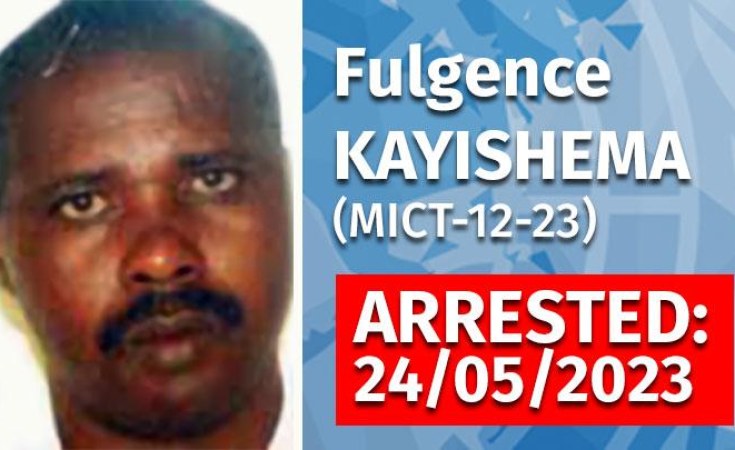Former Rwandan police officer Fulgence Kayishema, accused of ordering the killing of around 2,000 Tutsis during the 1994 genocide, has appeared before a South African court. He was on the run for more than two decades.
Fulgence Kayishema, one of the last fugitives wanted for the 1994 Rwandan genocide, appeared in a Cape Town court on Friday, two days after his arrest.
The former Rwandan police officer is accused of ordering the killing of some 2,000 Tutsis who were seeking refuge in a church.
The 62-year-old appeared calm and composed as a state prosecutor read out the accusations against him. They include "genocide" and conspiracy to commit genocide "relating to the slaughter of more than 2,000 people in Rwanda in 1994," prosecutor Nathan Adriaanse told the court.
At the end of a short hearing, magistrate Ronel Oliver remanded Kayishema into custody. His next appearance is scheduled for June 2. Kayishema will be held at Cape Town's Pollsmoor Prison ahead of his possible extradition to Rwanda.
More than 20 years on the run
Kayishema was arrested on Wednesday under a false name on a grape farm in Paarl, some 59 kilometers (37 miles) from Cape Town.
According to a charge sheet, he faces five charges in South Africa, including two of fraud. The fraud counts relate to applications he made for asylum and refugee status in South Africa, where the National Prosecuting Authority alleges he gave his nationality as Burundian and used a false name.
He had been a fugitive from justice since 2001, when the International Criminal Tribunal for Rwanda indicted him for genocide over his alleged role in the destruction of the Nyange Catholic Church in Kibuye Prefecture.
Kayishema has been on the US State Department's wanted list under the Rewards for Justice Programme, with a $5 million (Ꞓ4.7 million) reward offered for his arrest.
One of the most wanted genocide fugitives
The former police officer is described by the International Residual Mechanism for Criminal Tribunals (MICT) as "one of the world's most wanted genocide fugitives." The MICT in 2015 took over the work of the International Criminal Tribunal for Rwanda, which was set up by the UN after the genocide.
"Kayishema directly participated in the planning and execution of this massacre, including by procuring and distributing petrol to burn down the church with the refugees inside," the MICT said on Thursday, announcing his arrest.
"When this failed, Kayishema and others used a bulldozer to collapse the church, burying and killing the refugees inside," it added.
An estimated 800,000 ethnic Tutsis and Hutu moderates were killed during Rwanda's genocide, orchestrated by an extremist Hutu regime and meticulously executed by local officials and ordinary citizens in the rigidly hierarchical society.
dh/nm (AFP, Reuters)


